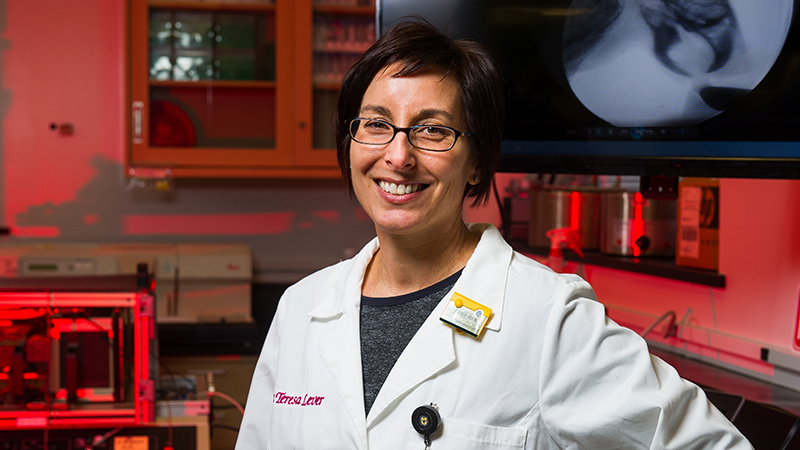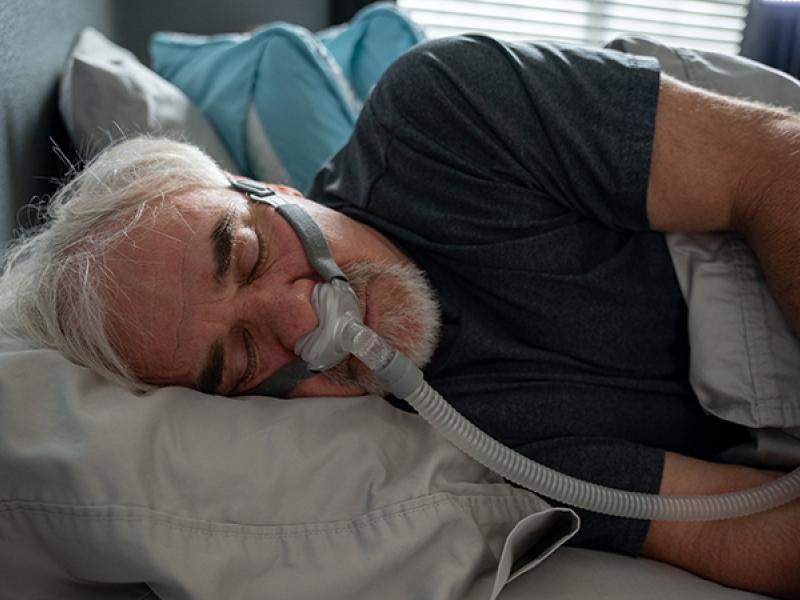
The National Institutes of Health has awarded two University of Missouri researchers a $1.9 million grant to study techniques to preserve swallowing and breathing function in patients diagnosed with neurodegenerative diseases.
The grant recipients include co-investigators Teresa Lever, PhD, associate professor of otolaryngology at the MU School of Medicine, and Nicole Nichols, PhD, assistant professor in the Department of Biomedical Sciences at the College of Veterinary Medicine and investigator at the MU Dalton Cardiovascular Research Center. The goal of their research is to understand how swallowing and breathing deteriorates in patients with neurodegenerative diseases, including amyotrophic lateral sclerosis (ALS), and to determine if tongue exercise can preserve swallowing and breathing function and coordination.
“Many people think the tongue is just important for speaking and swallowing, but it’s also critical to breathing,” Lever said. “The tongue contracts with every breath. If it’s not doing its job, the upper airway can collapse. And we see that in a lot of neurological conditions. If we can preserve tongue function for swallowing, it should also promote breathing.”
Lever and Nichols will test their hypothesis by administering a non-invasive, individualized exercise program designed to strengthen tongue function in rats whose motor neurons responsible for upper airway function are selectively eliminated. A device called a “force lickometer” will measure each rat’s lick force while it voluntarily drinks water from a spout. Then, twice a week, the rat’s standard water bottle will be replaced with a specialized spout that can be precisely adjusted to require the rat to lick harder to obtain water. For 12 hours overnight, when rats are most active, they will voluntarily drink from the special spout hundreds of times, which equates to a high-repetition and low-resistance training program commonly used for building overall body strength and endurance.
This study will allow Lever and Nichols to determine the underlying mechanism of exercise-induced preservation of upper airway function in the surviving motor neurons responsible for swallowing and breathing function and coordination. That could lead to future studies involving people.
“With diseases like ALS, we’re dealing with dying cells that control movement,” Lever said. “But not all cells die at the same time, and some will continue to live. If we intervene at an earlier stage in the disease process, are we altering the fate of the dying cells or are they still dying? And are we affecting surviving cells so they can pick up the slack of dying cells? That’s what we want to find out.”
The NIH grant is a four-year award that will involve MU researchers from different disciplines, including Lixin Ma, PhD, associate professor of radiology at the MU School of Medicine; Filiz Bunyak Ersoy, PhD, assistant research professor in the Department of Electrical Engineering and Computer Science at the MU College of Engineering; and Mojgan Golzy, PhD, assistant research professor in Health Management and Informatics at the MU School of Medicine.
“This really is a multidisciplinary effort across the University of Missouri,” Nichols said. “I believe we’ve put together a dream team to advance a field where there is still so much that is unknown.”





